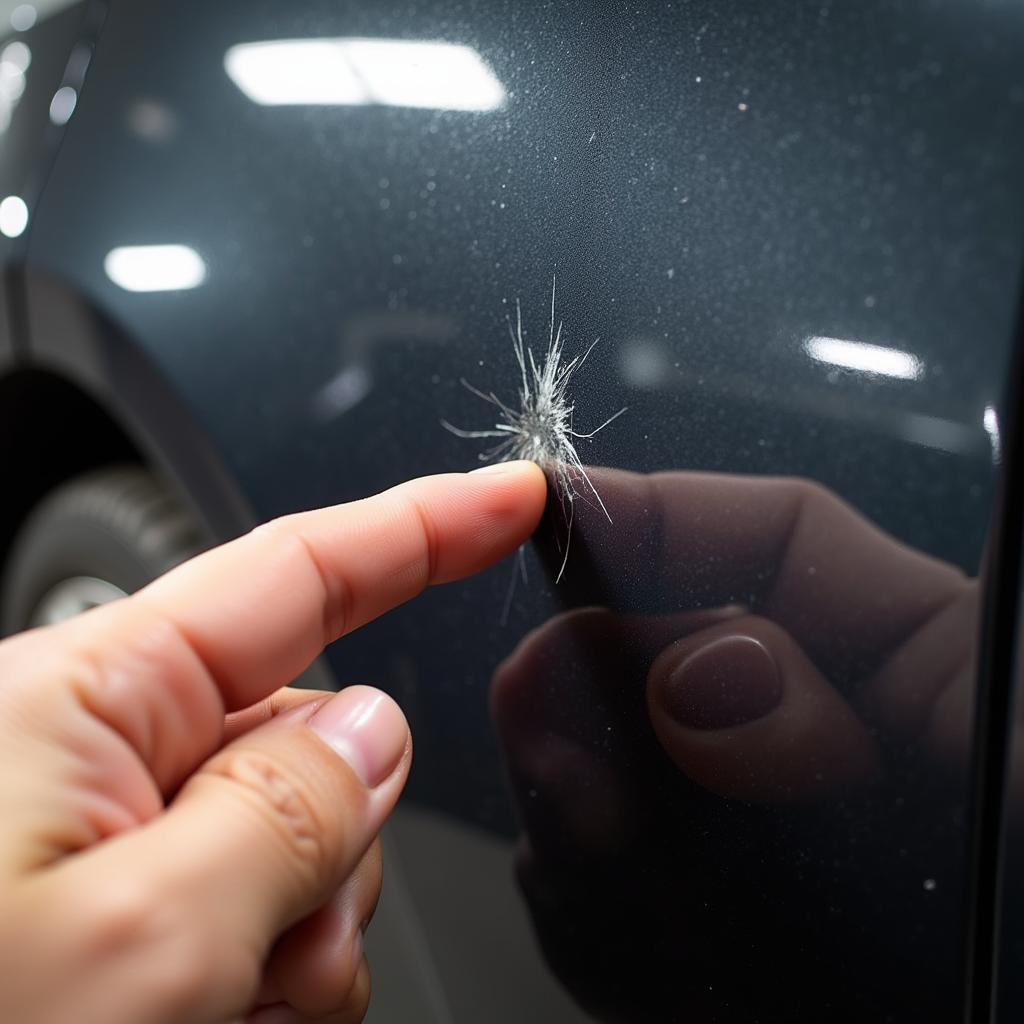Repossessing a car might seem like something out of a movie, leaving many wondering, “How does a repo man get a car without keys?” It’s a question that sparks curiosity and even a bit of anxiety for anyone who’s ever missed a car payment. While the thought of your car being stealthily taken away in the night might seem daunting, the reality of repossession is often less dramatic and bound by legal procedures. Let’s delve into the world of repossessions and uncover the methods used by repossession agents.
The Legalities of Repossession
Before we dive into the “how,” it’s crucial to understand the “why” and “when” of car repossession. When you finance a vehicle, you sign a loan agreement granting the lender a security interest in the car. This means they have the legal right to seize the vehicle if you default on the loan, typically due to missed payments. The specifics of repossession, including the allowable methods, vary depending on your state’s laws.
Methods Used by Repossession Agents
While the image of a shadowy figure hotwiring a car in the dead of night might fuel Hollywood thrillers, the reality of repossession is often less exciting. Repossession agents, often referred to as “repo men,” operate within the boundaries of the law and employ various methods to reclaim vehicles.
1. The Waiting Game
One of the simplest and most common tactics is patience. Repo men often stake out a debtor’s residence or place of work, waiting for the opportune moment when the car is parked unattended. Once they spot the vehicle, they can swiftly tow it away.
2. Breaching is a Last Resort
Contrary to popular belief, repo men typically cannot enter your property – including your garage – without your permission or a court order. Forcibly entering private property to seize a vehicle is illegal in most situations and can lead to legal trouble for the repossession company.
3. Disabling Devices
In some cases, lenders may equip financed vehicles with GPS trackers or starter interrupters. These devices allow them to locate the car easily and even disable the ignition remotely, making repossession a more straightforward process.
4. Negotiation and Voluntary Surrender
Believe it or not, repossession is often a last resort for lenders. They would much rather work out a payment plan with you than go through the hassle and expense of repossessing your vehicle. If you’re struggling to make payments, reach out to your lender as soon as possible. They may be willing to work with you to modify your loan terms or arrange a temporary forbearance.
Protecting Your Rights During Repossession
While repossession is a legal process, it’s crucial to understand your rights. Repossession agents are prohibited from using physical force or threats of violence. Additionally, once you’ve made arrangements to reclaim your vehicle and paid the outstanding fees, the lender typically cannot repossess the car again for the same missed payments.
What Happens After Repossession?
After a vehicle is repossessed, the lender will typically sell it at an auction or to a wholesaler to recoup their losses. If the sale proceeds don’t cover the outstanding loan balance and repossession costs, you may be responsible for paying the difference, known as a “deficiency balance.”
Avoid Repossession: Tips for Car Owners
- Communication is Key: Stay in touch with your lender if you anticipate difficulty making payments.
- Explore Your Options: Consider refinancing your loan, selling the vehicle, or seeking assistance from consumer credit counseling agencies.
- Understand Your Rights: Familiarize yourself with your state’s laws regarding repossession to protect yourself.
Conclusion
While the methods employed by repossession agents might seem shrouded in mystery, it’s essential to remember that repossession is a legal process governed by specific rules. By understanding your rights, communicating openly with your lender, and exploring all available options, you can navigate challenging financial situations and potentially avoid the stress and uncertainty of repossession. If you’re facing potential repossession, remember that you’re not alone, and there are resources available to help you.
FAQs
1. Can a repo man enter my locked garage?
No, repossession agents generally cannot enter your property without your permission or a court order. Forcibly entering a locked garage to repossess a car is illegal in most cases.
2. What should I do if my car is being repossessed?
Avoid confrontation. Contact your lender immediately to discuss your options.
3. Can I get my car back after it’s been repossessed?
Yes, you can typically reclaim your vehicle by paying the outstanding balance, repossession fees, and any other associated costs.
4. What if I’m behind on payments but my car is paid off?
If your car loan is paid off, the lender has no legal claim to your vehicle and cannot repossess it.
5. How can I prevent repossession?
Maintain open communication with your lender if you’re facing financial difficulties. Explore options such as loan modification or voluntary surrender.
6. Can I sue a repo man for damages?
You might have grounds for legal action if a repossession agent acted illegally, such as using excessive force or entering your property unlawfully. Consult with an attorney to discuss your rights.
7. Does repossession hurt my credit score?
Yes, repossession can negatively impact your credit score. It can stay on your credit report for up to seven years.
Need Help with Car Keys or Repairs?
Car troubles can be stressful, especially when facing potential repossession. If you need assistance with car key repair or other automotive services, don’t hesitate to reach out to us.
For any car-related concerns, contact our expert team at WhatsApp: +1(641)206-8880 or email us at [email protected]. We’re available 24/7 to assist you.





